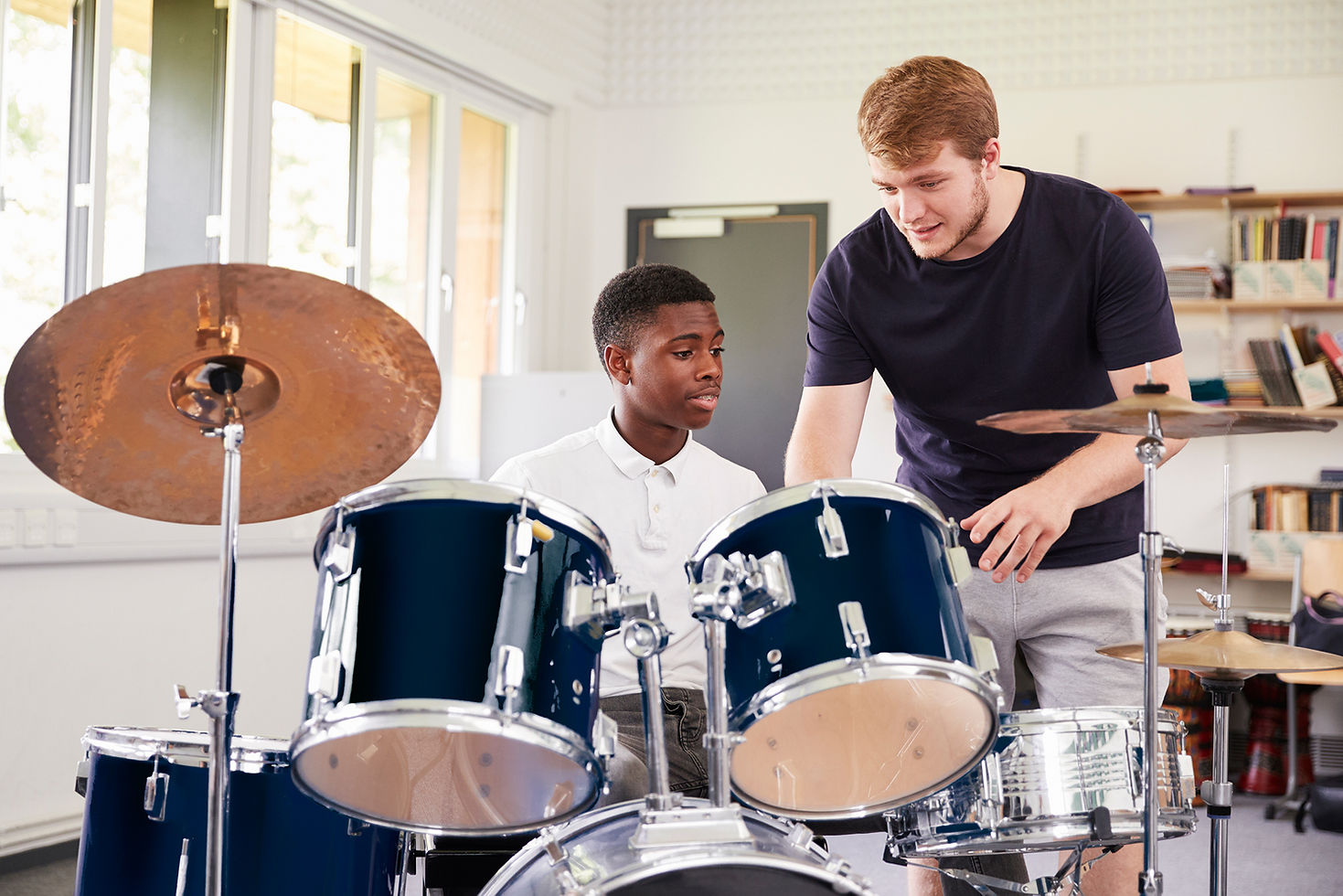
Embracing Student-Centered Education: The Key to Effective Music Teaching
- Joao Figueiredo

- Jul 25, 2023
- 3 min read
As music teachers, our mission extends beyond imparting musical knowledge to our students; it involves nurturing their passion, creativity, and growth as musicians. In this pursuit, we must shift our focus from solely emphasizing the "what" of music to exploring the "how" and "why." By adopting a student-centered approach and recognizing the significance of pedagogy and psychology, we can revolutionize our teaching methods and unlock the potential of our students like never before.
1. Focus on the How, Not the What
When we concentrate solely on teaching students what to play, we run the risk of overlooking the most critical aspect of their musical journey: the "how" of playing. It is the "how" that encompasses technique, expression, and personal interpretation. By paying attention to the "how," we encourage students to develop their unique musical voice and style, fostering a deeper connection to the music they create.
To emphasize the "how," incorporate exercises and activities that explore various aspects of music-making. Encourage students to experiment with different dynamics, phrasing, and articulation. Promote active listening and analysis of different performances to develop their understanding of musical expression. By doing so, we empower students to become more confident and expressive musicians.
2. Always Go for the Why
Understanding the "why" behind musical concepts is vital for students to grasp the underlying principles of music. When we explain the reasons behind specific techniques, theories, or musical choices, we help students form meaningful connections with the material. This deeper understanding fuels their passion for learning and motivates them to explore music beyond the confines of the classroom.
Encourage curiosity and critical thinking in your students. Encourage them to ask questions and seek answers about the historical context of a piece, the intent of the composer, or the emotions conveyed through the music. Providing context and explanations not only enriches their musical experience but also instills a lifelong love for learning.
3. Student-Centered Education: The Solution to All Problems
Student-centered education is a paradigm that places the learner at the heart of the learning process. Recognizing that each student is unique, with varying strengths, weaknesses, and learning styles, this approach tailors teaching strategies to meet individual needs.
By embracing student-centered education, music teachers can create a positive and inclusive learning environment. This approach fosters a sense of autonomy and ownership among students, allowing them to take charge of their learning journey. It also encourages collaborative learning, enabling students to learn from each other and develop vital communication and teamwork skills.
Moreover, student-centered education promotes intrinsic motivation, as students pursue topics and projects that resonate with their interests. As a result, they become more engaged and committed to their musical development, leading to more consistent and enthusiastic practice sessions.
4. Pedagogy and Psychology: Fundamental to Music Education
While musicianship is undoubtedly crucial, it is the marriage of pedagogy and psychology that forms the bedrock of effective music teaching. Understanding how students learn, process information, and overcome challenges enables us to tailor our teaching methods to address their specific needs.
Pedagogy provides us with the tools to create well-structured lesson plans, implement progressive learning techniques, and adapt to different learning styles. Meanwhile, psychology equips us to comprehend the emotional and cognitive aspects of learning music. Empathy and understanding help us guide students through frustrations and setbacks, ultimately bolstering their resilience and passion for music.
Conclusion
As music teachers, our role extends beyond simply instructing students in notes and rhythms. By embracing a student-centered approach and emphasizing the "how" and "why" of music, we can inspire a lifelong love for music and empower our students to become skilled, expressive musicians.
Remember, our goal is not only to teach music but also to nurture a deep appreciation for the art form, fostering a new generation of musicians who will contribute their unique voices to the world of music. By prioritizing pedagogy and psychology alongside musicianship, we unlock the full potential of our students, ensuring a brighter future for music education.




Comments